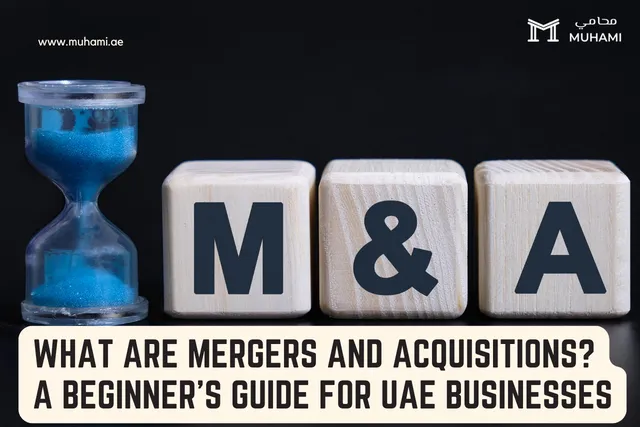AML/CFT reports in the U.A.E.

The U.A.E. Financial Intelligence Unit (“FIU”) examines potentially suspicious transactions and activities related to money laundering, terrorist financing, and related offences. This analysis is based on information and reports provided by financial institutions (“FIs”) and designated non-financial businesses and professions (“DNFBPs”), which work together to identify and counter such threats.
According to Cabinet Decision No. (10) of 2019 the DNFBPs are primarily defined as the following categories, with additional requirements applicable to them:
- Brokers and real estate agents;
- Dealers in precious metals and precious stones;
- Lawyers, notaries, and other independent legal professionals;
- Accountants;
- Providers of corporate services and trusts.
Pursuant to Federal Decree Law No. (20) of 2018 on Anti-money Laundering and Combating the Financing of Terrorism and Illegal Organisations and Cabinet Decision No. (10) of 2019, it is mandatory to establish procedures for reporting suspicious transactions as part of anti-money laundering (“AML”) and Counter-Terrorism Financing (“CFT”) efforts.
All DNFBPs are required to register on the goAML portal which is the platform used to file:
- Periodic AML/CFT Risk Assessment Reports;
- Suspicious Transaction Reports (“STRs”); and/or
- Suspicious Activity Reports (“SARs”).
If DNFBPs suspect that a crime has been or is being committed, they must refrain from conducting Client Due Diligence measures if they have reasonable grounds to believe that doing so would alert or tip-off the customer. In such cases, they are required to report the suspicious transaction to the FIU, including the reasons for not performing the due diligence measures. Periodic AML/CFT Risk Assessment Reports supposed to be submitted by company’s compliance officer for certain fiscal year, and the deadline is usually set by the U.A.E. Ministry of Economy.
Submission of these reports requires the presence of the following conditions:
- registration on the goAML portal;
- subscription to the international and local sanctions email newsletter;
- the company complies with the requirements of the AML/CTF legislation, in particular:
- identification, assessment, and understanding of its AML/CTF risks;
- taking all measures and carrying out Client Due Diligence procedures (verifying identity, origin of funds, etc.);
- appointment of a compliance officer with the necessary qualifications and experience;
- the company does not create client files and does not make transactions with anonymous users, with a pseudonym or a name consisting of numbers, as well as does not provide any services to such persons;
- implementation of adequate management and information systems, internal controls, policies, and procedures to reduce AML/CTF risks and to monitor such operations;
- identification of indicators of suspicious transactions, reporting to the government authorities about them, and cooperation with the government authorities;
- record keeping for at least 5 years and ability to immediately provide the government authorities with certain information and documents regarding clients, interactions with them, and client transactions.
Companies that fail to submit the reports or otherwise violate AML/CTF legislation in the U.A.E. may be held liable and subject to the following types of sanctions:
- fine of AED 50,000 up to AED 5,000,000 for each event of violation;
- revocation of the licence and/or ban on working in the industry for a period determined by the authority;
- limitation of the powers of the company’s managers and owners who committed violations or their suspension;
- imprisonment (arrest) for a period determined by the authority.
No tip-off. It is prohibited for everyone to inform or warn another person about investigation of suspicious transactions. DNFBPs must keep the related information confidential and must not share it with anyone. Penalties for breach of this rule include imprisonment and severe fines. The idea is that tipping-off can let criminals escape and destroy evidence. That is why tipping-off is prohibited.
DNFBPs are not held criminally, civilly, or administratively liable for providing requested information to the authorities or breaching any confidentiality obligations imposed by legislative, contractual, or administrative provisions unless such disclosure is made in bad faith or with the intent to cause harm to others.
Should you have any questions, please feel free to contact CHENINS via www.chenins.ae.
This article is based on laws and regulations existing on 29 May 2025. It is intended for general informational purposes only and does not constitute legal advice or create client relationships.
Any Questions?
Connect with lawyers and seek expert legal advice
Share
Find by Article Category
Browse articles by categories
Related Articles

What Are Mergers and Acquisitions? A Be…
Mergers and acquisitions (M&A) are big moves that can transform a busi…

What Are Mergers and Acquisitions? A Beginner’s G…
Mergers and acquisitions (M&A) are big m…

What to Do When Your Landlord in Dubai …
When Your Landlord in Dubai Ghosts You Over Your Deposit That Silent Treatme…

What to Do When Your Landlord in Dubai Ghosts You…
When Your Landlord in Dubai Ghosts You Over Your …

The Ultimate Guide to Mergers and Acqui…
The UAE is an exclusive destination for Mergers and Acquisitions (M&A)…

The Ultimate Guide to Mergers and Acquisitions (M…
The UAE is an exclusive destination for Merg…
